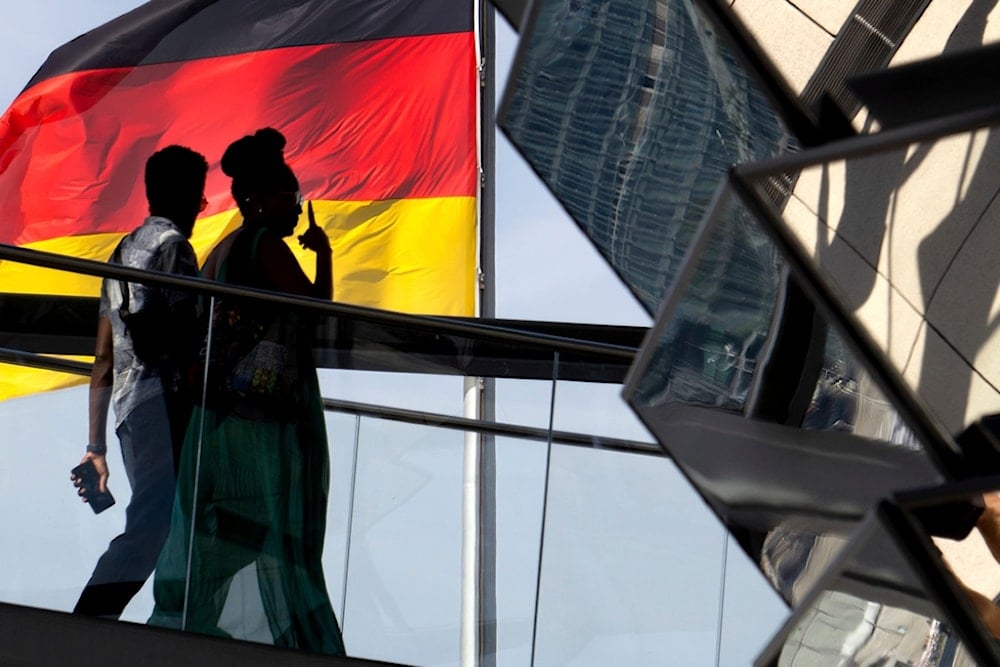Germany's AfD to 'put an end' to ruling coalition's policies
The German far-right AfD is already making electoral promises for when they potentially take over the country after resounding success in regional elections.
-

Two people walk in front of a German national flag as they visit the dome of the Reichstag building, home of the German federal parliament, Bundestag, in Berlin, Germany, September 1, 2024 (AP)
Steffen Kotre, a lawmaker from the far-right Alternative for Germany (AfD), vowed to end the policies of Germany's current ruling coalition, which he claims had harmed the nation's prosperity, after his party made significant gains, winning 32 seats in Thuringia and 40 in Saxony.
The AfD took the lead over the conservative Christian Democratic Union of Germany (CDU) and the governing parties, after securing almost a third of the vote in Thuringia. This marked the first win for the far-right in a state parliament election since WWII.
Kotre criticized the "traffic light" coalition, consisting of the Social Democrats, Greens, and Free Democrats, for pursuing policies he views as ideologically driven and out of touch with the will of the citizens.
"The traffic light government symbolizes the destruction of Germany's prosperity, foreign intrusion into the lives of the German people, and a lack of trust in politics. The AfD will put an end to all of this," Kotre stated following the election results.
The AfD's success in these eastern German states is seen as a potential forewarning for the general election scheduled for September 28, 2025. Kotre also expressed skepticism that the "old" parties, including the Christian Democratic Union (CDU), would change their policies despite the growing dissatisfaction among voters.
"The results of the elections in eastern Germany will have an effect on western Germany. People are seeing that you can vote against wrong policies," Kotre added.
The AfD's electoral gains reflect a broader trend of rising support for the far-right in Europe, especially in places such as Germany and Italy; Germany in particular is seeing more regions lean to the far-right in light of general discontent with the way the government is acting.
AfD's victory 'bitter': Scholz
Chancellor Olaf Scholz of the Social Democratic Party (SDP) said that the results were "bitter" and called on mainstream parties to form state governments that exclude the far-right.
"The AfD is damaging Germany. It is weakening the economy, dividing society, and ruining our country's reputation," he said in a statement to Reuters.
Meanwhile, the AfD's top candidate in Thuringia, Bjorn Hocke, hailed the "historic victory".
Hocke has had a controversial political career, as his party had been fined for using a Nazi slogan at a previous time, while he denies knowingly doing so.
The rise of the AfD and its inevitable transition from popular support to securing state positions has been anticipated for some time. This has been especially true due to the current German government's approach to geopolitics, as well as its support to Kiev, which has had immense repercussions on its economy.
With sanctions on Russia and unrelenting support to Kiev, as well as deteriorating ties with China, the German ruling coalition has come under severe criticism, allowing the far-right anti-immigration and Eurosceptic party's rise in German politics.

 3 Min Read
3 Min Read








